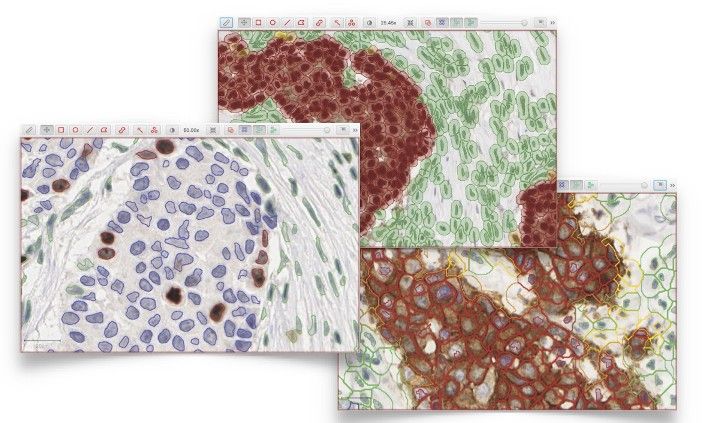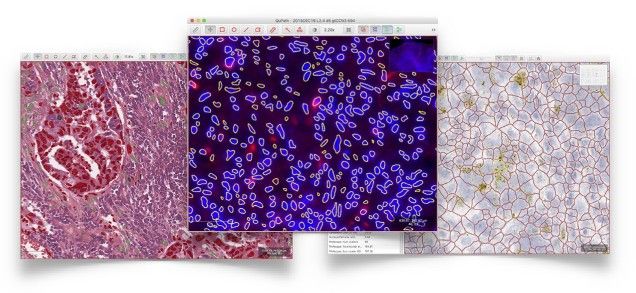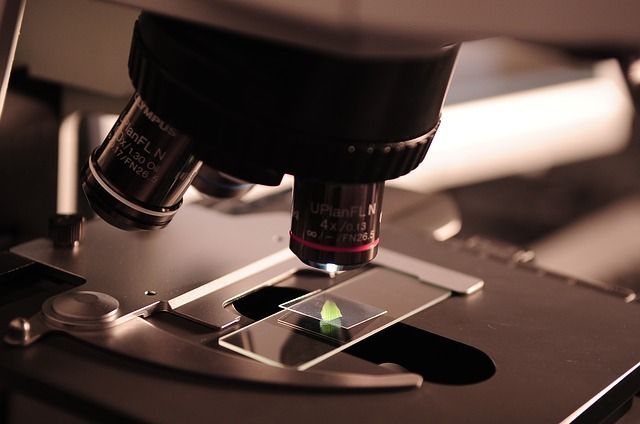QuPath: Free Open source Digital Pathology Whole Slide Viewer, & Analysis Software
QuPath is a free & open source quantitative Pathology & Bioimage Analysis software. Because QuPath is built with Java it is cross-platform, it's available for download for Windows, Mac OSX and Linux. It is built to provide whole slide image analysis required in clinical pathology.
QuPath is developed at Division of Pathology at the University of Edinburgh. The project received funds from Invest Northern Ireland, and Cancer Research UK Accelerator.

Highlights
- Cross-platform: Windows, Linux, Mac OSX
- Lightweight
- Powerful visualization kit
- Provides fast analysis
- Rich annotation tools
- Workflows for both IHC and H&E analysis
- Novel algorithms for common tasks, e.g. cell segmentation, Tissue microarray dearraying
- Machine learning powered analysis
- Clear data model
- Easy to integrate with Matlab and ImageJ
- Multiple formats for export
- Automated tasks support
- Automated Analysis
- Powerful Scripting tool
- Supports data exchange with other open-source tools like ImageJ

Features
- Whole-slide viewer
- Dynamic color transformation
- Support compressed and uncompressed files
- Biomarker quantification
- Tissue Microarray support
- Sophisticated tumor identification
- Mini-viewer
- Multiple display options
- Flexible object classification
- Interactive tools to display, zoom, scale, navigate
- Image exports
- User-friendly automated analysis
- Stain estimation
- Analytics
- Reporting
License
QuPath is released under GNU General Public License v3.0
Platforms
QuPath is a cross-platform it works for Windows, Linux, & Mac OSX
Download
The current stable version v0.1.2 (3 July/ 2019), is available for download, There is an early release of QuPath v0.2.0 is available for testing. Download QuPath for: Windows, Linux, or Mac OSX.
Resources
- QuPath Github
Whole-slide Image Analysis
Open source Free Whole-slide Image Viewers and Analysis Software

